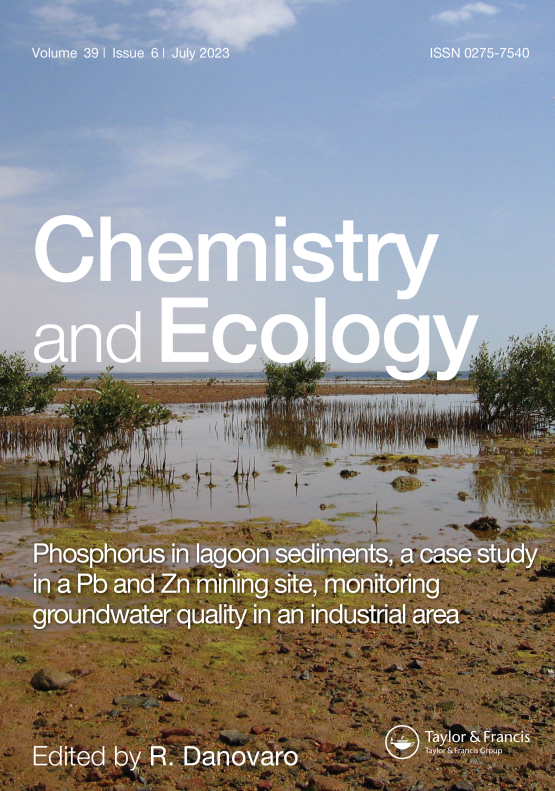Editorial Board Members needed for
Chemistry and Ecology
Deadline
31 August 2024
About the role
Chemistry and Ecology is currently recruiting for Editorial Board Members. This role is a great opportunity for an academic with a strong research background in both fields of chemistry and ecology who also has the enthusiasm to help develop the journal.
The tasks of an editorial board member are not onerous. To summarise, you will be expected to do the following:
- to act as a referee (peer reviewer) whenever required
- to submit articles to the journal and encouraging colleagues and others to submit good quality articles when the opportunity arises
- to be an ambassador for the journal and its virtues in discussion with colleagues and peers and at conferences which you attend;
- to attend, where possible, Editorial Board Meetings or promotional events
- to inform the Editor-in-Chief and Publisher of new initiatives, ideas and developments, for example ideas for special issues or article collections
Becoming an Editorial Board member of a journal is a rewarding and fulfilling experience where you will build your own networks, promote the research that you are passionate about, and be recognized as an alongside leading figures within the academic community.
About the journal

Chemistry and Ecology publishes original articles, short notes, registered reports and occasional reviews on the relationship between chemistry and ecological processes. This journal reflects how chemical form and state, as well as other basic properties, are critical in their influence on biological systems and that understanding of the routes and dynamics of the transfer of materials through atmospheric, terrestrial and aquatic systems, and the associated effects, calls for an integrated treatment. Chemistry and Ecology will help promote the ecological assessment of a changing chemical environment and in the development of a better understanding of ecological functions.
Chemistry and Ecology encourages multi-disciplinary approaches dealing with:
- Environmental pollution: distribution and ecological implications of pollutants including nutrients and key elements, in the atmospheric, soil and aquatic environments.
- Ecotoxicology: responses to toxic agents at community, species, tissue, cellular and sub-cellular level, including aspects of uptake, metabolism and excretion of toxicants in marine and terrestrial systems from tropical systems to the poles.
- Environmental bioremediation and biotechnology: laboratory and field research on the identification, evaluation and use of biological/biotechnological items and supporting physical treatments for the restoration of contaminated soil and aquatic environments; laboratory and field research on microbial, plant or animal fouling and its monitoring and their treatment.
- Biogeochemical cycles: biogeochemical cycles in terrestrial and aquatic ecosystems with special emphasis on the potential effects of pollutants.
The papers published in Chemistry and Ecology are important references for all environmental science researchers.
Key Skills and Attributes
Essential criteria for being an editorial board member of Chemistry and Ecology include:
- A strong commitment to ethical rigour as well as knowledge of the COPE guidelines and commitment to ensure that the journal adheres to strict ethical standards at all times.
- The ability to play an active role in reviewing papers submitted to the journal and prior experience in similar editorial roles.
- A commitment to engaging promptly and efficiently with Taylor & Francis staff and suppliers to implement necessary processes and improvements.
- A vision and enthusiasm for the continuous development of the journal.
- Good experience of academic publishing and familiarity with all stages of the process.
- The desire to develop editorial skills further within the role and a willingness to engage in training to this effect.
- A willingness to support the commissioning editor in generating topical and impactful article ideas and approaching experts in the field.
Application Instructions
Please follow the link on the page to submit your application.
If you have any questions, please reach out to [email protected].
Did you know?
Joining a Taylor & Francis journal as an Editor or Board member brings many personal and professional benefits.
Find more roles in your subject area with our Editor Recruitment search tool.
The journal is committed to ensuring diversity, equity and inclusion within its editorial team and decision making processes. All applications will be treated as strictly confidential, and each will be judged on its merits without bias for seniority of institutional affiliation. We do not discriminate on the basis of race, color, ancestry, national origin, religion, or religious creed, mental or physical disability, medical condition, genetic information, sex (including pregnancy, childbirth, and related medical conditions), sexual orientation, gender identity, gender expression, age, marital status, military or protected veteran status, citizenship, or other protected characteristics.